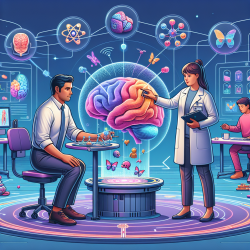The field of therapeutic practices for individuals with mild traumatic brain injury (mTBI) is ever-evolving, driven by continuous research and innovative approaches. A recent study titled "Activation of dominant hemisphere association cortex during naming as a function of cognitive performance in mild traumatic brain injury: Insights into mechanisms of lexical access" offers valuable insights that can significantly enhance therapy practices for practitioners working with mTBI patients.
Understanding the Research Findings
This study explored the relationship between cognitive performance and brain activity during a word retrieval task in military service members with a history of mTBI. The researchers used magnetoencephalography (MEG) to measure brain activity while participants named pictures of common objects. The results revealed that individuals with lower cognitive performance exhibited reduced amplitude in evoked responses within specific cortical regions compared to those with higher cognitive performance.
The findings suggest that weak afferent inputs within an extended cortical network may contribute to word-finding difficulties in patients with low cognitive performance. This supports the notion that lexical access involves parallel processing across distributed neuronal networks.
Implications for Therapy Practices
The insights from this research can be leveraged by practitioners to improve therapeutic interventions for mTBI patients:
- Personalized Therapy Approaches: Understanding the specific cortical regions involved in word retrieval can guide therapists in developing personalized strategies targeting these areas, potentially improving language recovery outcomes.
- Cognitive Performance Monitoring: Regular assessment of cognitive performance can help identify patients at risk of word-finding difficulties, allowing for early intervention and tailored therapy plans.
- Parallel Processing Techniques: Incorporating exercises that engage multiple cognitive processes simultaneously may enhance lexical access and overall language function in mTBI patients.
Encouraging Further Research
The study opens avenues for further research into the mechanisms underlying lexical access and cognitive performance in mTBI patients. Practitioners are encouraged to stay informed about ongoing research developments and consider collaborating with researchers to explore innovative therapeutic techniques.
The integration of research findings into clinical practice not only enhances therapy outcomes but also contributes to a deeper understanding of the complex interplay between brain activity and cognitive function in mTBI patients.










